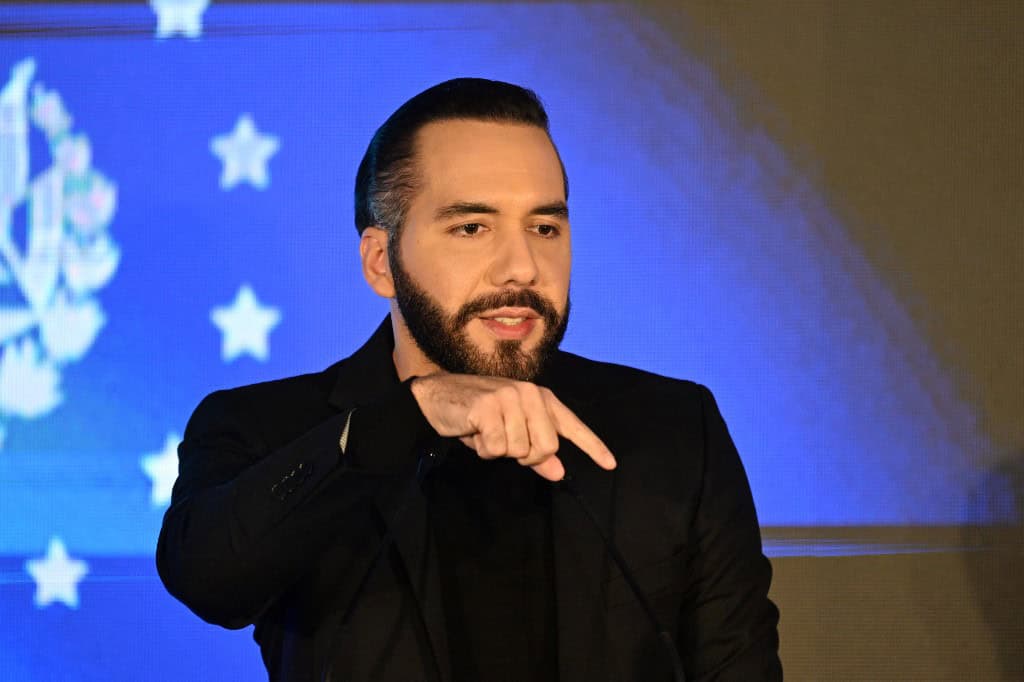Donald Trump hosts his closest ally in Latin America, Salvadoran President Nayib Bukele, at the White House today. Bukele has been a key figure since agreeing to incarcerate migrants deported from the United States in exchange for payment. Whenever journalists mention Bukele, the U.S. president and his cabinet shower him with praise. On his Truth Social platform this weekend, the Republican expressed eagerness for the visit, stating, “I await him with anticipation.”
“President Bukele has generously taken custody of some of the world’s most violent foreign enemies,” Trump wrote. Since mid-March, the magnate has deported over 250 migrants—mostly Venezuelans—to the Central American nation, invoking the 1798 Alien Enemies Act, previously used only in wartime. The latest group of 10 arrived this weekend, according to U.S. Secretary of State Marco Rubio.
For the initial group of over 200, Washington paid “approximately six million dollars,” per the White House, to detain them in a notorious mega-prison criticized for failing to meet human rights standards. The deportations have sparked legal battles, as Washington accuses the migrants of belonging to the Venezuelan criminal organization Tren de Aragua or the MS-13 gang without providing evidence.
The government has admitted to deporting Salvadoran Kilmar Ábrego García due to an “administrative error” but has stalled judges demanding his return.
President B
The fate of the deportees “depends on President B and his government,” Trump declared on his platform. The relationship is marked by trust. The leader of the world’s top superpower calls Bukele “President B,” who once described himself as a “cool dictator” to deflect accusations of authoritarianism.
On X, the Salvadoran presidency’s press office boasts that El Salvador is positioning itself as a “strategic ally” of the United States in Central America. Bukele will be the first Latin American president to visit the Oval Office in Trump’s second term, though Trump has hosted others at his private Florida residence.
The meeting occurs amid Trump’s tariff storm, from which El Salvador has not been spared. It pays the universal 10% minimum tariff imposed by Washington on all trade partners to reduce the trade deficit, stabilize public finances, and relocate industrial activities. The United States is the primary destination for Salvadoran exports, particularly clothing, electrical capacitors, sugar, and coffee, according to the Central Bank of El Salvador.
The 2.5 million Salvadorans living in the U.S. are a pillar of their home country’s economy through remittances. In 2024, El Salvador received $8.48 billion in family remittances, equivalent to 23% of the country’s GDP. In January and February, remittances grew 14.2% compared to the same months in 2024, driven by fears of migrant deportations, economists say.
Although Trump promised mass deportations of undocumented migrants, El Salvador appears to enjoy preferential treatment. The billionaire terminated humanitarian programs for migrants from Cuba, Haiti, Nicaragua, and Venezuela, as well as Temporary Protected Status (TPS) for Venezuelans.
From Level 2 to Level 1
However, TPS for Salvadorans remains intact, despite being a safeguard for foreigners unable to safely return to their countries—and according to Washington, El Salvador is now ultra-safe. This month, the State Department upgraded El Salvador from Level 2—shared with countries like Spain and France—to Level 1, the highest rating, a nod to the Salvadoran tourism industry.
This is further evidence that the distrust of the former Democratic administration under Joe Biden toward the Central American nation is a thing of the past.






